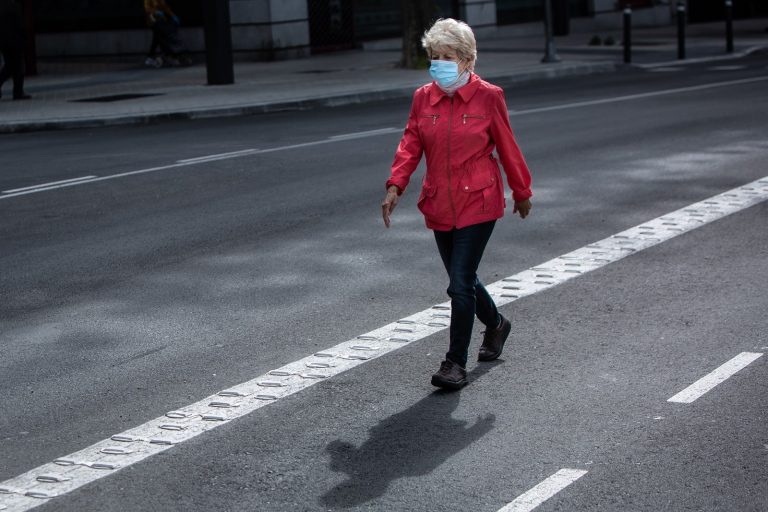Amid controversies over pharmaceutical drug effectiveness and decreased vaccine efficacy for emerging SARS-CoV-2 mutations, what else can individuals do to protect against Coronavirus Disease 2019 (COVID-19)?
Research studies indicate that regular exercise strengthens immunity through various mechanisms and potentially helps prevent COVID-19.
In addition to strengthening the body’s innate and adaptive immunity, exercise may enhance the normal functioning of physiological systems and aid with COVID-19 prevention through “attenuation of the inflammatory response, modulation of oxidative stress, and increase in nitric oxide (NO) synthesis.”
These benefits were reinforced in a recent Feb. 2021 review article by Brazilian scientists: “the beneficial effects of physical activity are broad and range from a decreased inflammatory profile, modulation of immune cells mobilization to decreased URTI [upper respiratory tract infection]; infections, and increased antibody levels.”
Bolsters immunity, alleviates symptoms
On Nov. 17, 2020, researchers from Spain published a detailed study in the International Journal of Environmental Research and Public Health about physical exercise as a possible multimodal tool for COVID-19 prevention. They define physical exercise as “planned structured and repetitive activity performed with purpose,” which is known to be an effective therapy for most chronic diseases. Studies indicate that exercise likely strengthens both the body’s innate and adaptive immune responses.
Success
You are now signed up for our newsletter
Success
Check your email to complete sign up
The innate immune response is the body’s first, non-specific, immediate defense line against foreign antigens. It Includes the skin, mucous membranes, and cells such as natural killer cells, macrophages, and neutrophils. The adaptive immune response, or acquired immunity, is long-lasting, unequivocal, and sustained, involving the clonal expansion of T and B lymphocytes and antibody production from plasma cells, a type of differentiated B cell. There are complex interactions between these two systems, and several cytokines, or signal proteins, are involved.

Concerning the SARS-CoV-2 virus, innate immune cells can recognize the virus through its structural characteristics, including its pathogen-associated molecular patterns (PAMPs). The authors cite research showing that exercise stimulates neutrophil and natural killer cell activity, which may combat virus-infected cells. Furthermore, the redistribution of leukocytes between tissues and blood in post-exercise or recovery periods may help control early-stage SARS-CoV-2 infection.
During the incubation and early stages of infection, the adaptive immune response aims to remove the virus from the body and prevent progression to more severe stages. The researchers referenced a Wuhan study in which severe COVID-19 patients had significantly decreased T cell levels. Regular exercise can help to facilitate the programmed death and replacement of certain T cells, resulting in new T cells that are “capable of responding to novel antigens” and “alleviate symptoms.”
Boosts vaccine response and post-infection recovery
Regular exercise may also improve T cells’ immune response through the IL-7 signal molecule and increase protective antibody titers (levels) produced in response to COVID-19 vaccines. It acts through anti-inflammatory mechanisms to “lower the risk of a cytokine storm in COVID-19 infection and minimize the sequela during the inflammatory condition.”
Through stimulation of nitric oxide production, exercise may facilitate COVID-19 post-infection recovery by alleviating lung damage by dilating lung vessels. Since SARS-CoV-2 infection triggers massive production of reactive oxygen species (ROS) that can damage the lungs, exercise can reduce oxidative stress and stimulate immunity to decrease the clinical symptoms of COVID-19 infection potentially.
What exercises should I do?
The Physical Activity Guidelines for Americans recommends 150 to 300 minutes of moderate to vigorous intensity aerobic activity per week and muscle-strengthening activity of moderate or greater intensity two or more days per week for additional health benefits. With social distancing restrictions, limited access to public gyms and parks, and periodic lockdowns, these goals have been difficult to achieve.
At-home fitness regimens have surged in popularity during the pandemic. Peloton, the creator of interactive fitness bikes and treadmills, more than doubled its revenue over the first nine months of 2020. The company benefited from a spike in subscriptions, increasing from 563,000 in Sep. 2019 to 1.3 million just one year later.
Follow us on Twitter or subscribe to our email list















